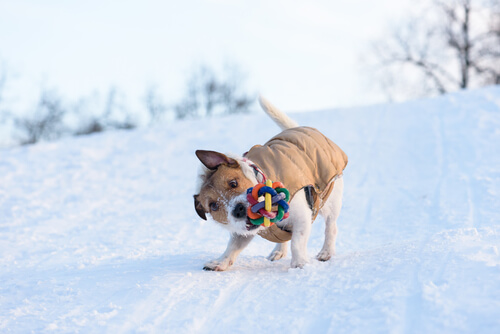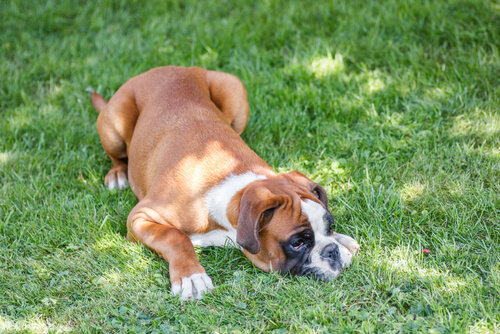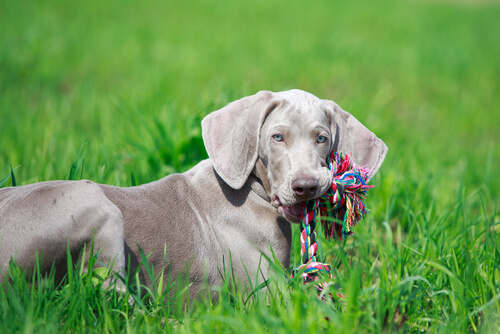Why Do Dogs Shake Toys?

In this case, we will answer a very common question: why do dogs shake toys? You will be amazed!
My dog shakes its toys
Most (if not all) of dogs love to play, especially when they are small. Surely, you have seen your pet take an object (of their own or someone else’s) and shake it uncontrollably. Of course, it may seem funny and strange to the human mind, but for them it is the most normal thing in the world.
It does not matter if our dog is of a small or large breed … it cannot resist the temptation to move a toy to and fro, whether it is having fun by itself or with us. Surely it has happened to you that after you throw it an object and when it brings it back to you, it does not want to let it go and it begins to shake it and pull on it with all of its strength. What is the reason for this behavior?
The reasons why dogs shake their toys

We must remember that our pet has wild ancestors, even if it is a small percentage, because undomesticated blood flows through its veins. And many of their habits are related to this characteristic. If your dog is shaking toys or objects, it may be due to the following reasons:
1. Hunter instinct
Surely you will know that the dog comes from the wolf and that both have shared habits. When a dog pounces on a toy, growls at it, digs its teeth to it, and then shakes it from side to side, it is showing its superiority over the object in question.
In wilderness, wolves or hunting dogs do the same to catch a prey. Since it must be shaken with force to be killed, this practice is common.
2. Release of energy
Many pets spend most of the day in a small apartment and do not have the possibility to expend their energy. When they have the opportunity to be free, they do whatever they want … even to get angry with a poor toy or ball. You may notice this behavior if it does not go out for a walk often or if it has been locked up at home for a few days.
3. Fun
Who says dogs do not want to have a great time? They can set aside their ancestors and start playing like a child. And shaking things is very entertaining for them. You will notice this in its expression, in how it moves its tail and in its barks (different from when there are dangers or it is afraid).
4. Maternal education
Dogs remember everything that their mother has taught them since they were born until they were separated from her (even from when they still had their eyes closed). The females pass on their wisdom, including habits that they would use if they lived in a wild environment. With the passage of time, the animal “recalls” how it had been done in the maternal lessons.
5. Boredom
Of course, dogs get bored … maybe more when they are puppies and want to play all day. It probably takes one of its toys, brings it wherever you are and shakes it in front of you. Without a doubt, this is a sign that it needs a little activity, fun or company. Be careful because if you do not go along with it, it may begin to destroy anything in its path.
6. Frustration

You must pay close attention so as not to confuse boredom with frustration. In this last case, the animal feels bad because it thinks that you have abandoned it or that you do not love it. Separation anxiety is quite common in certain breeds (such as the Cocker Spaniel), and is expressed in different ways. One of them is shaking and breaking toys.
7. Aggression
Finally, a dog shaking its toys vigorously can be a negative sign. How do you detect this behavior? If he gets rigid when he has the object in his mouth, if he raises his head and growls in desperation or if he has tried to do the same with another animal or a child. It is important to consult with a specialist to prevent its behavior from becoming dangerous.
Remember the reasons why the dog shakes his toys and keep them in mind with your relationship with your dog.